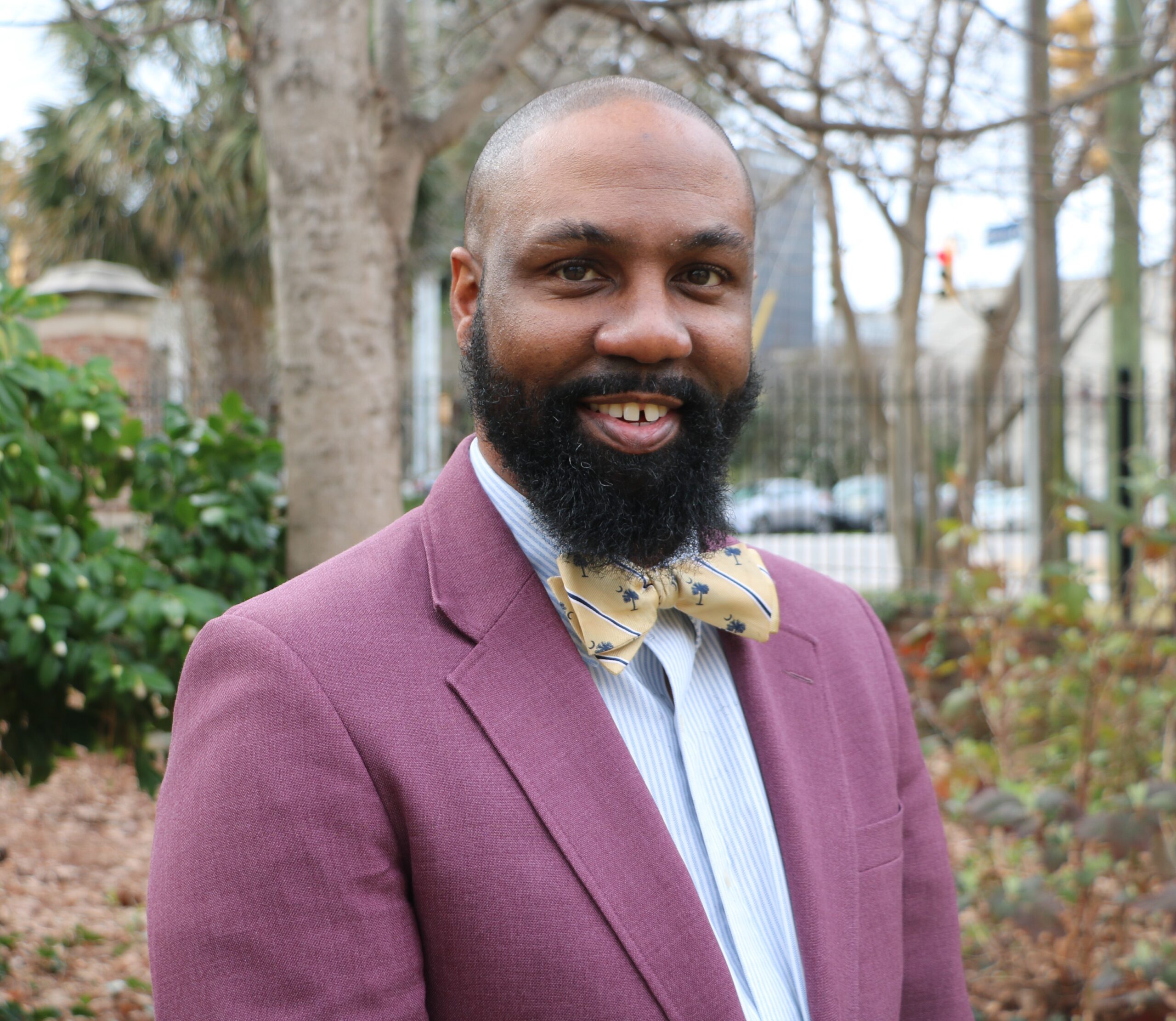
Associate Professor
College of Social Work
University of South Carolina
“If we, as academic researchers, don’t want our research end-products to end up on a shelf, we need a crash course in strategic management so we understand what it takes to translate our innovations beyond the bounds of academia.”
Shaun Owens, PhD, MPH, CAPS, Associate Professor, College of Social Work, University of South Carolina
Associate Professor Shaun Owens is a busy man. Since joining the University of South Carolina’s (UofSC) College of Social Work in 2014, he has served as director for the Healthy Aging Research and Technology (HART) Lab, which focuses on the community-led development and evaluation of technology-based solutions to help older adults make informed health decisions that will enable them to age in place.
Owens is also working on two research projects funded by the Bristol Myers Squibb Foundation and the Department of Defense. Both of these studies focus on the development and evaluation of strategies to eliminate cancer disparities.
When not in his research lab, Owens is either teaching undergraduate or masters-level courses, mentoring students, authoring scholarly papers for academic journals, or pursuing his personal passion, entrepreneurship. “For a long time, I’ve been fascinated by how innovation, entrepreneurship, and strategic partnerships can drive research translation and commercialization. I thought that taking a course in innovation might provide me with a better feel for what it takes to push a research idea from the traditional conceptualization, implementation, and publication to commercialization or even a social enterprise.”
Sensing his interest, colleague Sue Levkoff, ScD, the SmartState Endowed Chair in the SeniorSMART® Center, suggested he enroll in a course offered through the Darla Moore School of Business’ Professional MBA program called Strategic Management of Technology and Innovation (SMTI). The course was developed and is taught by Laura B. Cardinal, PhD, the SmartState Endowed Chair in Innovation + Commercialization.
“I read the course description and it sounded interesting, but what sealed it for me is that SMTI is taught over eight weeks on Saturdays, which worked for my schedule,” he says. “I enrolled in the Spring 2020 session that began in January and ended two weeks before the COVID-19 pandemic was declared.”
Owens shares a little secret about SMTI: he thought the class would be good but didn’t expect to enjoy the required reading and thought the class dialogue would be, well, okay. Boy, was he wrong.
“When I started into the course’s required reading, the first thing I noticed was that businesspeople have an entirely different way of thinking and writing. I read and publish all the time, but it’s all science and has a specific style. The SMTI readings were fascinating! The best thing short of a novel you can get,” he says.
What also surprised Owens was the eclectic nature of his fellow SMTI classmates. There were students from the UofSC College of Pharmacy and College of Engineering and Computing, a computer scientist from Microsoft, a gas and energy engineer, a rehabilitation specialist, and multiple other specialties. Ages ranged from mid 20’s to 50’s. He admits that academic life is very siloed and stepping outside of his discipline and into such a diverse group was good for him.
“We as academics often talk about interdisciplinary collaboration, but it doesn’t often happen with fields that are atypical. When we do collaborate, it tends to be folks who have expertise that we see as having high relevance to our work. For example, I commonly collaborate with nursing, public health, social work, psychology, and computer science, but I less often discuss partnerships with marketing or tourism faculty. SMTI was very highly collaborative. I learned a lot about industry careers and how they use research to drive innovation, and the discussions were fun; we kept each other going through the eight weeks,” he says.
“For me, SMTI was one of the best classes I’ve ever taken. It was inspiring and enlightening; I got what I came for and more. SMTI has the right materials, the right mix of people and the right instructor,” he adds.
Nearly a year after taking SMTI, Owens remains close to his former SMTI classmates. If he needs technical information for his research, wants advice on a business issue or just wants to touch base, he is comfortable reaching out to his SMTI network.
The final benefit of SMTI is that his interest in innovation and entrepreneurship continues to grow and he continues to add to his knowledge base by reaching out to others in university-based programs like the Notre Dame IDEA Center as well as within the South Carolina and UofSC ecosystems.